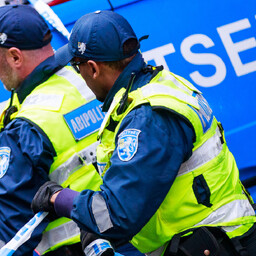Auxiliary police officers have been assisting the police for over 30 years. Currently, they mainly help with public order and surveillance work, such as patrolling.
The Ministry of the Interior now wants to give them more tasks. For example, in the future, they could help guard the state border and issue documents. This would give them more opportunities to assist.
Nurmely Mitrahovitš from the Ministry of the Interior says that some people do not want to patrol the street but still want to help. New tasks would give them this opportunity.
Auxiliary police officers could also use more tools in the future. For example, they could guide intoxicated people to an alcoholmeter or check people's data from the population register.
Leena Pukk from the police says that police work is broader than just patrolling. Auxiliary police officers could help before the police arrive. This would save police time.
However, auxiliary police officers cannot perform the most important police tasks, such as investigating crimes. This remains the duty of police officers.
For new tasks, auxiliary police officers will have to learn more. Their training will last 150 hours in the future, instead of 40 hours.
Auxiliary police officers will be divided into three levels in the future. Some will not patrol but help in the office. Others will patrol together with other auxiliary police officers.
Currently, there are 1235 auxiliary police officers. The new rules may come into force in 2027.

